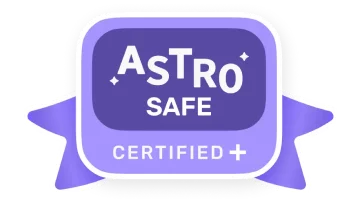Facts for Kids
Empathy is the ability to understand and feel what another person is experiencing, allowing for deeper connections and kindness between individuals.
Overview
Types Of Empathy
Definition Of Empathy
Empathy In Literature And Art
Empathy Development In Children
Cultural Perspectives On Empathy
Empathy And Emotional Intelligence
Challenges To Empathy In Modern Society
Empathy In Psychology And Mental Health
The Importance Of Empathy In Relationships
The Role Of Empathy In Conflict Resolution

Inside this Article
Emotional Intelligence
Communication
Mental Health
Edvard Munch
Technology
Happiness
Stomach
Walking
Crying
People
Mind
Did you know?
🌈 Empathy is the special ability that helps us understand how others feel.
👟 When you feel sad for someone else who is sad, that's empathy!
🐶 Animals, like dogs, can also show empathy by comforting those who are upset.
😊 Empathy means knowing and understanding someone else's feelings.
💖 Emotional empathy allows you to truly feel what another person is feeling.
🤗 Compassionate empathy inspires us to help others when we understand their feelings.
💏 Empathy builds trust and makes friendships stronger.
🌿 Therapists use empathy to connect with their clients and help them feel better.
🧒 Children develop empathy early in life, often through play and sharing.
🌍 Different cultures express empathy in unique ways, promoting kindness and understanding.
Introduction
When you see someone sad, and you feel sad for them, that’s empathy! It’s like putting on their shoes and walking in them. 👟
Empathy helps us be kind and caring friends. It is important for everyone, from kids to grown-ups! Understanding how others feel makes our world a happier place. Did you know that animals show empathy too? 🐶
Imagine a dog comforting its owner when they're upset! Empathy helps build strong friendships and makes us better at working together. Let's learn more about this wonderful feeling!
Types Of Empathy
Finally, there’s compassionate empathy, which is the urge to help after you understand how someone feels. 🤗
For example, if you see someone hurt, you might want to give them a hug or assist them. Knowing these types helps us understand others better every day!
Definition Of Empathy
It comes from the Greek word "empatheia," which means "passion" or "emotion." When you can feel what others are feeling, you connect with them in a special way. It’s more than just saying “I’m sorry.” It’s about being there for someone and feeling their joy or sadness. 🌟
Imagine your friend is nervous about a big test. If you feel butterflies in your stomach too, that's empathy! Empathy helps us relate to others, making our friendships stronger and our hearts kinder!
Empathy In Literature And Art
Authors and artists explore emotions to help us understand how others feel. For example, in "Charlotte's Web" by E.B. White, the bond between Wilbur the pig and Charlotte the spider shows deep empathy. 🎨
In art, many paintings capture emotions that help viewers connect with the artist's feelings, too. Famous pieces like "The Scream" by Edvard Munch show sadness and help us feel compassion for the character. 💔
Reading stories and looking at art let us walk in someone else’s shoes, teaching us empathy in creative ways!
Empathy Development In Children
Studies show that babies as young as six months can feel empathy by crying when they hear other babies cry. Isn’t that amazing? 🍼
As kids grow, they learn empathy by playing, sharing, and being around friends and family. Storytime is also great for teaching empathy! 📚
When you read about characters’ feelings, you learn to understand emotions better. Encouraging kids to talk about their feelings helps. Asking questions like “How did that make you feel?” builds empathy and allows children to connect with others! 🥰
Cultural Perspectives On Empathy
In many societies, empathy is considered very important. For instance, in some Asian cultures, showing empathy often involves listening quietly to others. 🎧
In Western cultures, people may express empathy more openly, like giving hugs or saying supportive words. The way people show empathy can be influenced by their traditions and beliefs. No matter how folks express it, empathy helps promote kindness, understanding, and strong connections among people! Exploring and learning about different cultures' ways of showing empathy can be a fun adventure! 🚀
Empathy And Emotional Intelligence
Emotional intelligence helps us understand our own feelings and those of others. When you have a high emotional intelligence, you can manage your emotions and get along well with friends. Empathy helps in recognizing when someone is sad or happy. This allows us to respond kindly! 💕
For example, if a classmate is upset, understanding their feelings can help us provide support. This can make a difference not just at school, but in life! Empathy and emotional intelligence together can make amazing leaders and friends! 👩
🎓
Challenges To Empathy In Modern Society
With technology and social media, it’s easy to forget to look into people’s feelings. People often text instead of talking face-to-face, which makes it harder to understand each other. 📱
Also, when we feel stressed or busy, we might not take time to listen to others. However, working on empathy is important! 🌟
Finding moments to connect, understanding feelings, and practicing compassion can help overcome these challenges. Creating a more empathetic world starts with small actions, and anyone can help make a difference! 🌏
Empathy In Psychology And Mental Health
It helps therapists, who are trained to help people feel better, connect with their clients. By showing empathy, therapists can better understand what someone is going through. This makes people feel supported and understood! 🌿
Empathy also plays a role in mental health. When we show empathy to ourselves, it helps us feel more positive and caring. Loving yourself and understanding your feelings is important too! For example, if you have a bad day and feel sad, it's okay to feel that way. 💖
The Importance Of Empathy In Relationships
It helps us build trust and makes us feel cared for. When we show empathy, we learn more about how our friends feel. This creates a bond that makes friendships better! For example, if a friend is excited about a new toy, you can share in their happiness! 🎉
Empathy also helps when we fight with friends. If we try to understand how they feel, we can solve problems more easily. Like the saying goes, "Treat others how you want to be treated!" This makes everyone happier!
The Role Of Empathy In Conflict Resolution
When people argue, understanding each other’s feelings can help resolve conflicts. It encourages patience and communication. For example, if two friends fight over a toy, listening to each other’s feelings can help. If one friend says they're sad about not sharing, the other might feel empathy and realize it’s important to share. 💕
By working together and understanding different perspectives, conflicts can turn into teamwork! In conclusion, empathy teaches us how to communicate better and find solutions, making life smoother and relationships stronger!

